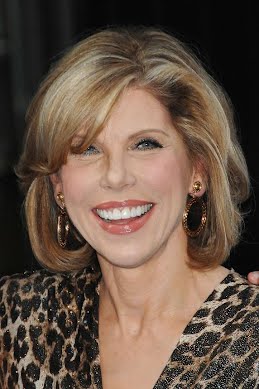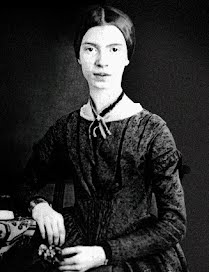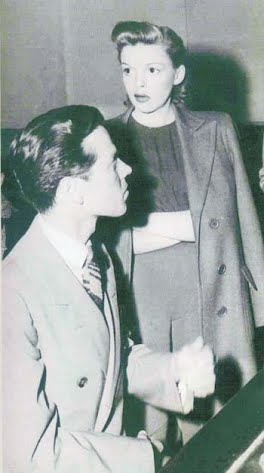On great clothes and funny lines

“I attribute the longevity of my career to the fact I didn’t have to carry that [sex symbol] mantle. I was never beautiful so I’m not unbeautiful. I may not have been a leading lady, but I had great clothes and funny lines. I think I had more flexibility.”
-Christine Baranski in the NYT's new monthly feature, "Main Course"
I've always loved the simple, direct, yet sensitive writing of the NYT's fashion journalist Cathy Horyn (think Steve Jobs' memos, but on the topic of runway fashion rather than consumer technology.) But I haven't read as much of her as I'd like, since her beat often isn't of very much interest to me.
Sure, I like to read a monthly women's fashion magazine or two (Elle is my favorite), but that's more for the pop culture than for the clothing spreads. I'm not interested in keeping up with the constant treadmill of multi-city, multi-season "fashion weeks" that Cathy Horyn writes about for a living.
That's why I was happy to see that the Times has given Horyn a new monthly column called "Main Course," which is billed as "a conversation over lunch with a notable public figure." For the column's debut, Horyn sat down with the actress Christine Baranski at storied Manhattan media power lunch spot Michael's (Horyn notes that during their lunch Barbara Walters was naturally sitting one table away, and, just as naturally, Baranski didn't notice.) Needless to say, I thought the whole article was fantastic.
P.S. Although I'd beg to differ on Baranski's assertion that she's not beautiful, I get what she's trying to say. I'd take great clothes and funny lines over youthful sex symbol status any day.
A point I can steer toward
"...this father-friend
who liked to show me the shape I would become
rather than cutting my edges so I could fit a preferred cast more to his liking
since it seemed what he liked best was to recognize native clay
solid in its mystery
and observe how its wonder was synecdoche for the indescribable majesty of
its being observed by someone.
who liked to show me the shape I would become
rather than cutting my edges so I could fit a preferred cast more to his liking
since it seemed what he liked best was to recognize native clay
solid in its mystery
and observe how its wonder was synecdoche for the indescribable majesty of
its being observed by someone.
Hard to believe
he will no longer age
as I continue changing
growing strange to whatever I once was.
he will no longer age
as I continue changing
growing strange to whatever I once was.
But he’s growing still
as something like light in me and my family
and as I feel tossed lightly and dropped suddenly
living as we all do
like a dinghy in a vast sea
I know there’s a point
I can steer toward
since his life will be my lighthouse
as something like light in me and my family
and as I feel tossed lightly and dropped suddenly
living as we all do
like a dinghy in a vast sea
I know there’s a point
I can steer toward
since his life will be my lighthouse
so that I’ll always know how to go home."
--An excerpt from the truly wonderful eulogy to his father Chris Wetherell posted on his blog last week.
The absence of the witch

For a while I've wanted to share what is, hands-down, my favorite Emily Dickinson poem. For those who claim to need a translator to read poetry (ahem, B) here's a six-word summary: It's about love, loss, and eternity.
I've had my hands full lately with lots of fun stuff: traveling to see family and friends, trying to stay abreast of Ookoo work, and starting a new and exciting reporting job. Here's hoping you still have love for this witch, even when I've been absent from your blog feed for a couple weeks.
Long Years apart can make no
Breach a second cannot fill--
The absence of the Witch does not
Invalidate the spell--
The embers of a Thousand Years
Uncovered by the Hand
That fondled them when they were Fire
Will stir and understand.
Happy golden days of yore

To be stored away for your holiday cocktail party conversation purposes:
"Hugh Martin, the composer, lyricist, arranger and pianist best known for creating the Judy Garland standards “Have Yourself a Merry Little Christmas,” “The Boy Next Door” and “The Trolley Song,” died on Friday at his home in Encinitas, Calif. He was 96.
Garland initially refused to sing the holiday ballad, which began, "Have yourself a merry little Christmas/It may be your last," until that second line was softened to "Let your heart be light."
-from Martin's March 14th 2011 obituary in the New York Times
It sounds morbid, but the New York Times' Obituary section is one of my favorite parts of the paper. I started reading it regularly on the recommendation of a friend who has it set as her homepage. I was pretty horrified the first time I saw her open her Internet browser, but it made sense when she explained it to me. Think about it: Anyone notable enough to be written up in the New York Times upon his or her death has probably had a very interesting life, and has contributed something pretty major to society.
Now it's one of my favorite feeds on my RSS reader-- I always learn something new and often come away inspired.